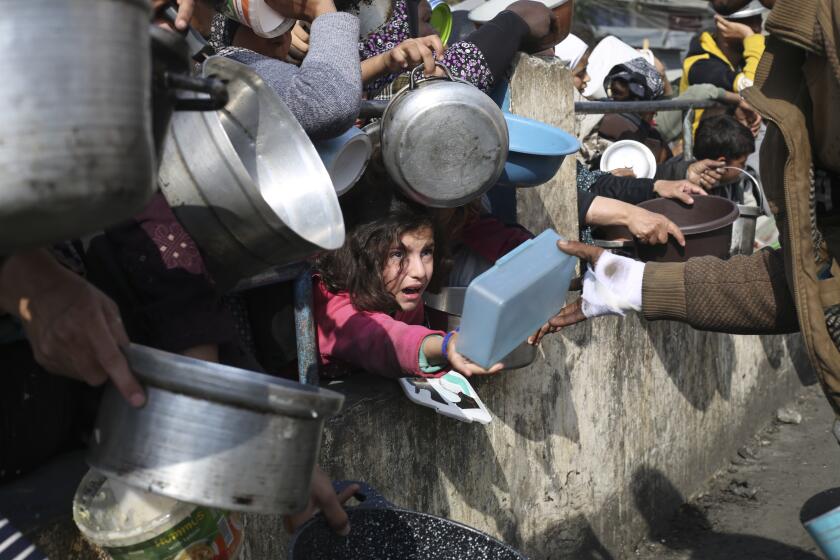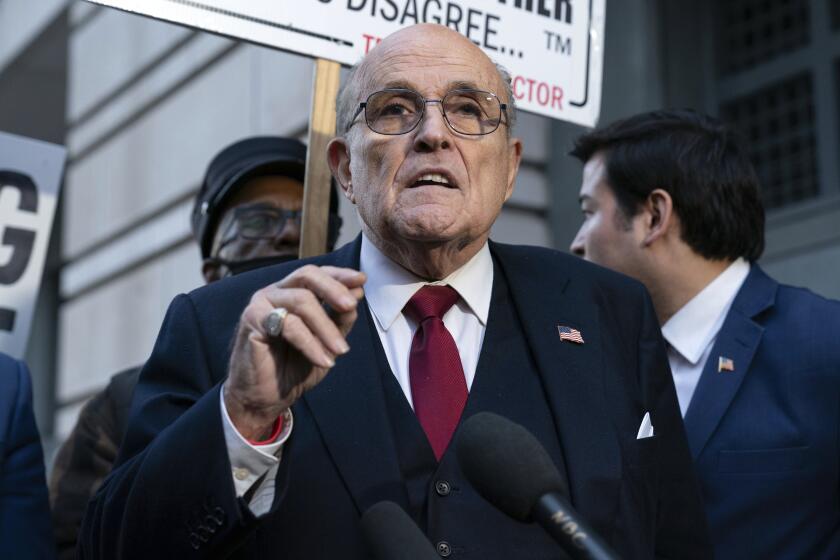Russia begins implementing food embargo against U.S. and allies
Russia on Thursday began rolling out a sweeping embargo on food imports from the United States, members of the European Union and allied nations in response to those countries’ economic sanctions for Moscow’s aggressiveness in Ukraine.
Prime Minister Dmitry Medvedev signed an order banning imports of food and agricultural crops from the U.S., the EU, Australia, Canada and Norway. He told a meeting of government officials that products covered by the ban would include meat and poultry, fish, dairy products, fruit and vegetables. Imports of infant food would not be prohibited, he said.
Medvedev’s order put flesh on the bones of a decree issued by President Vladimir Putin late Wednesday banning or restricting food imports from countries that have imposed sanctions against Russia in connection with the Ukraine crisis.
The U.S. and the European Union stepped up punitive measures against Russia last week in an attempt to force the Kremlin to withdraw support for pro-Moscow separatists in southeastern Ukraine.
Medvedev said the tightening of Western sanctions had left Russia no choice but to strike back with measures that would remain in place for one year unless relations improved.
“Right up to the last minute we hoped that our foreign partners would understand that sanctions were a dead end. But the situation turned out in such a way that we had to take retaliatory measures,” Medvedev said.
“If our partners demonstrate a constructive approach, the government is ready to review the time frame of the embargo,” he said.
The Obama administration considers the Russian ban a direct response to several rounds of economic sanctions against Russian individuals, banks, energy companies and weapons suppliers.
Administration officials dismissed the move Thursday as much more harmful to Russia than to the U.S. or Europe.
The move amounts to a “cruel irony” that will limit Russians’ access to a substantial part of their food supply, said a senior U.S. Treasury Department official.
About “40% of the food source on an annual basis comes from imports,” said David S. Cohen, Treasury undersecretary for terrorism and financial intelligence. “This goes directly after the Russian people’s access to food.”
“We don’t do that,” said Cohen, noting that U.S. policy has generally avoided targeting food, medicine or medical devices in imposing sanctions on foreign governments.
The criticism came in a morning conference call with reporters called by Cohen and Jason Furman, President Obama’s closest economic advisor.
The U.S. has a “large, strong, well-diversified economy,” said Furman, while the Russian economy “is a much smaller, weaker, more poorly diversified economy.”
It’s estimated that the Russian sanctions will affect about one-tenth of the country’s $43 billion in annual food imports, causing difficulties for foreign suppliers and domestic consumers alike.
EU fruit and vegetable growers, who supply about $2.7 billion worth of produce to Russia each year, are expected to be particularly hard hit, but the pain will be spread unevenly across the 28-nation trading bloc, analysts said.
“For the larger EU economies — Germany included — the costs are bearable. For some of the smaller EU economies the pain will be more acute,” RBS Capital said in a research note.
For the U.S., the Russian embargo is expected to shut the door on a market worth about $1.3 billion a year. A White House spokesman on Wednesday denounced the Russian sanctions, saying the move would “deepen Russia’s international isolation, causing further damage to its own economy.”
Russian officials said the embargo would drive the revival of domestic agriculture and promote the Kremlin’s goal for the country to become self-sufficient in food production.
Special correspondent Gorst reported from Moscow and Times staff writer Parsons from Washington.
More to Read
Start your day right
Sign up for Essential California for news, features and recommendations from the L.A. Times and beyond in your inbox six days a week.
You may occasionally receive promotional content from the Los Angeles Times.






